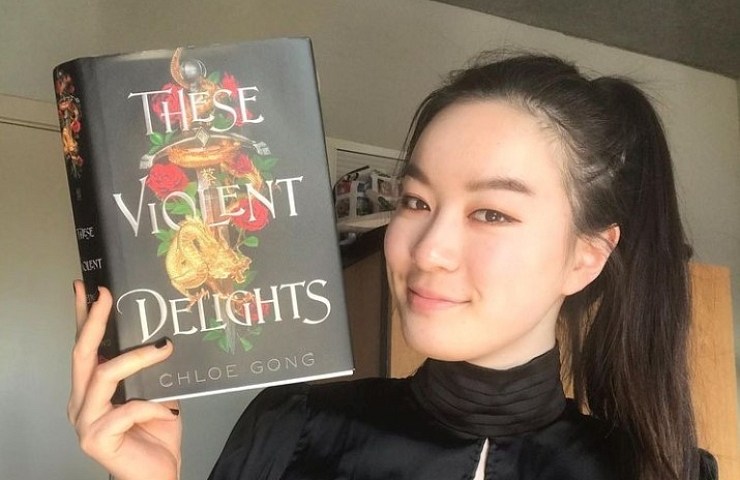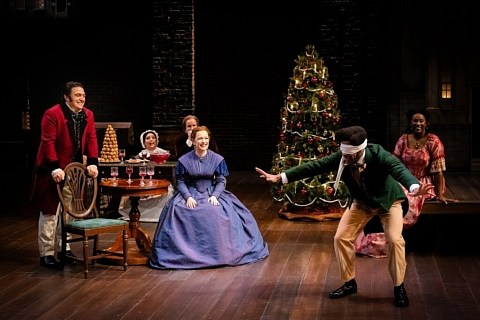“The stars incline us, they do not bind us.”
– Chloe Gong, ‘These Violent Delights’
Love and betrayal. Bloody murder and romance. Histories and new endings.
All of these are concepts prevalently used in Young Adult novels, yet while some authors struggle to churn it all into compelling, well-written stories, Chloe Gong weaves it together in a gorgeous balance.
Chloe Gong is the author of the New York Times best-selling series These Violent Delights, its sequel series Foul Lady Fortune and her ongoing series Immortal Longings. She is a historical fantasy fiction author who dabbles in real-life history as well as events of her own making.
These Violent Delights, Gong’s debut novel set in 1920s Shanghai, is a Romeo and Juliette retelling where gangs and governments clash in bloody battles and chemical warfare. The Russian Montagov family represents the Montague family while the Chinese Cai family mirrors the Capulets, are at the height of their gang war, whilst also trying to fend off foreign influences of the French, English and Japanese.
At the same time in the book, there is a monstrous being killing off gang members on both sides in violent ways. The two former lovers and main characters must work together to prevent the total annihilation of their city. It’s a destructive cycle of two major issues in the story, as when one issue grows worse, the other does as well. Gong acknowledges it was a challenge to keep the focus on the different parts of the cycle consistent throughout the story rather than forgoing one of them, but she manages that issue wonderfully.
With Gong’s characters, it is a fun challenge to give them unique personalities. For example, while Juliette Cai is the daughter and heir of the gang leader, the gang still partakes in their societal preference of males over females, as seen with many leadership responsibilities deferred to her cousin Tyler. Both cousins are ruthless, but while Tyler is an all-or-nothing type of ruthless, Juliette is more questioning and sensible, and it’s a great contrast between two characters who are of the same blood yet have very different methods of achieving their goals.
On the other side, the Montagovs are not family-oriented, as seen with the preferential leadership of a character outside the family, and how Gong writes those dynamics of obedience and respect. Roma Montagov and his two companions Marshall and Benedikt are willing to do whatever it takes to accomplish their goals, even if it means against Roma’s father and endangering his sister. Through these two gangs, Gong weaves a complex contrast between two family dynamics through the concepts of blood against foreigners while keeping a similar ideal of fairy units struggling to hold themselves and their gangs together.
Gong writes her stories in multiple characters’ third-person points-of-view, which makes it quite fun to see how she delves into the various personalities and mindsets of each character.
She writes from both the main character’s POVs and minor characters such as relatives and the main killer in Foul Lady Fortune. When it comes to balancing the plot progression, she writes the larger detailed parts of the story with the major characters, such as backstory and developments in plans created and actions taken.
For smaller characters, she focuses more on major events and actions as they happen, such as important murders and vital discoveries. She then uses the major character perspectives for the reactions post-events, such as government or gang retaliations, which work very well as readers can both read the actions as they play out and then see how the various characters react to and feel about major events occurring that they were not a part of.
Gong states how difficult it is to balance what facts of history would be known or unclear to the characters due to hindsight. It causes a challenge in what events her characters can experience and how they would perceive them on the grand scale of murder and politics.
1920-30s China was especially difficult as truths took a long time to be verified, so Gong chose to incorporate historical events to emphasize major influences of imperialism, nationalism and cultural generational trauma throughout the plot, rather than provide factual information.
For example, the second scene in Foul Lady Fortune sees the lead female Rosalind experiencing the real-life train track bombing carried out by the Japanese to frame Chinese Nationalists. However, the true perpetrator was discovered years later, so in the story, they are only assumed.
Gong’s books have an overall rating of over four stars across various websites such as GoodReads, Barnes and Noble, Amazon and Google Books. The most common reviewers state how amazed they are at how she can solve plotholes by balancing history with the plot realistically, doesn’t dump information all at once, writes well-thought-out secondary characters that are entertaining to read from their perspectives and maintains an engaging aspect of mystery throughout her novels.
Oftentimes, it can be quite obvious when parts of the plot are stretched out too thin or a character is inserted to solve a plot hole, but the general consensus is Gong avoids such situations perfectly and keeps a great pace throughout each book.
It can be a daunting feat to incorporate a variety of genres, characters, plotlines and points of view, yet Chloe Gong conquers such challenges to build intricate worlds of murder and romance. She proves she can tie together everything in her written world with both reality and her imagination through her pen and ink.





Recent Comments